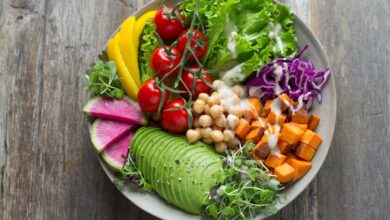Top Herbal Teas for Better Gut Health and Digestion

Good gut health plays a vital role in overall wellbeing, and what you drink can make a big difference. Herbal teas are a time-tested, natural way to support digestion and soothe the stomach. Many people turn to these teas to relieve bloating, reduce inflammation, and ease discomfort after meals. If you’re looking for gentle, plant-based support for your digestive system, certain herbal teas can be particularly helpful.
This article explores the best herbal teas for gut health and digestion, how they work, and how they may even support those dealing with conditions like gastroparesis. Whether you’re dealing with mild digestive issues or simply want to support a healthier gut, there’s likely a tea that suits your needs.
Why Gut Health Matters
Your gut does more than just digest food. It houses a large portion of the immune system and helps regulate mood, energy, and nutrient absorption. Poor digestion can lead to bloating, gas, constipation, diarrhoea, or more serious conditions like irritable bowel syndrome (IBS) or gastroparesis. Supporting gut health naturally can prevent these issues and improve quality of life.
Herbal teas have been used for centuries across cultures to promote digestive comfort. They’re caffeine-free, generally safe for regular use, and can be taken alongside other natural approaches, including Herbs For Gastroparesis, for those with chronic digestive conditions.
9 Herbal Teas for Better Gut Health and Digestion
1. Ginger Tea: Warming Relief for the Digestive Tract
Ginger is one of the most popular and well-researched herbs for digestion. Ginger tea helps stimulate saliva, bile, and gastric juices, all of which support the breakdown of food.
Benefits:
- Reduces nausea and vomiting
- Stimulates digestion and stomach emptying
- Eases bloating and gas
Ginger may be particularly useful for individuals with gastroparesis, as it can encourage the stomach to empty more efficiently. Though more research is needed, some small studies suggest ginger may help with delayed gastric emptying. If you’re using Natural Supplements For Gastroparesis, ginger tea could be a helpful addition to your routine.
How to prepare:
Boil a few slices of fresh ginger root in water for 10 minutes. Add lemon or honey if desired. Drink before or after meals.
2. Peppermint Tea: Soothing for Spasms and Gas
Peppermint tea is widely recognised for its calming effect on the gut muscles. It contains menthol, which can relax the digestive tract and reduce spasms.
Benefits:
- Eases bloating and indigestion
- Reduces abdominal pain associated with IBS
- Calms intestinal muscles
Although peppermint may not be suitable for people with acid reflux (as it can relax the lower oesophageal sphincter), it often helps those with general digestive discomfort. For those with gastroparesis, it can relieve secondary symptoms like gas and bloating, though it doesn’t necessarily improve stomach motility.
How to prepare:
Steep 1–2 teaspoons of dried peppermint leaves or a peppermint tea bag in hot water for 5–7 minutes. Best consumed after meals.
3. Chamomile Tea: Gentle Support for the Stomach and Mind
Chamomile has been used in traditional medicine for centuries. Known for its calming properties, chamomile tea is gentle on the stomach and helps ease tension in the digestive tract.
Benefits:
- Reduces bloating and stomach cramps
- Supports sleep and stress reduction
- May reduce inflammation in the gut
Chamomile is helpful for those with stress-related digestive symptoms, and it may also reduce inflammation in the gastrointestinal tract. For people with gastroparesis, reducing inflammation and improving rest can support better digestive function.
How to prepare:
Use dried chamomile flowers or a chamomile tea bag. Steep in hot water for 5–10 minutes. Drink before bedtime or after meals.
4. Fennel Tea: Combating Gas and Indigestion
Fennel seeds are commonly used in Indian and Middle Eastern cooking and are known to ease digestion. Fennel tea can be particularly effective after a heavy meal.
Benefits:
- Reduces gas and bloating
- Relieves stomach cramps
- Supports bowel regularity
Fennel contains compounds that relax gastrointestinal muscles and support bile flow, which helps break down fats. It’s safe for most people and may offer some relief to those who experience bloating due to gastroparesis or other digestive disorders.
How to prepare:
Crush a teaspoon of fennel seeds and steep in boiling water for 10 minutes. Strain and sip slowly after meals.
5. Liquorice Root Tea: Anti-inflammatory and Gut Protective
Liquorice root has both anti-inflammatory and soothing properties. It may help heal the stomach lining and reduce digestive discomfort.
Benefits:
- Supports mucous production in the gut
- Reduces stomach inflammation
- May ease symptoms of acid reflux and ulcers
Those with gastroparesis who experience nausea or gut inflammation might find mild relief with liquorice tea. However, long-term use should be cautious, especially in people with high blood pressure, as liquorice can affect potassium levels.
How to prepare:
Use a liquorice root tea bag or simmer 1 tsp of dried root in hot water for 10–15 minutes. Limit intake to one cup per day unless advised otherwise by a healthcare provider.
6. Dandelion Root Tea: Liver and Gut Detox Support
Dandelion root tea helps stimulate bile production, which aids fat digestion and supports liver function. It’s also a mild diuretic and can help the body clear waste.
Benefits:
- Stimulates appetite and digestion
- Promotes liver health
- Mildly laxative effect
Dandelion root tea may be helpful for sluggish digestion. Though not a direct treatment for gastroparesis, it can support detoxification and bile flow, which indirectly benefit the digestive system.
How to prepare:
Roast dandelion root (or use a pre-packaged dandelion tea) and steep for 10 minutes. Drink in moderation.
7. Turmeric Tea: Anti-inflammatory Support
Turmeric is known for its anti-inflammatory and antioxidant properties. As a tea, it can support gut health by calming inflammation and promoting a balanced gut microbiome.
Benefits:
- Anti-inflammatory effect on the digestive tract
- May support gut microbiota
- Aids bile flow and liver function
Curcumin, the active compound in turmeric, can help people with chronic inflammatory conditions affecting the gut. For those managing gastroparesis, it may support better digestion when used alongside Herbs For Gastroparesis.
How to prepare:
Simmer a teaspoon of turmeric powder in water for 10 minutes. Add black pepper (to enhance absorption) and a bit of honey or lemon for taste.
8. Slippery Elm Tea: Soothing for the Stomach Lining
Slippery elm contains mucilage, a gel-like substance that coats and soothes the stomach lining. This is especially useful for people experiencing irritation or acid reflux.
Benefits:
- Forms a protective layer in the gut
- Relieves heartburn and discomfort
- May improve regularity
While it doesn’t speed up digestion, slippery elm can offer comfort by reducing gut irritation. Those with gastroparesis who experience nausea or reflux may find it particularly soothing.
How to prepare:
Mix powdered slippery elm with hot water and stir until thickened. Drink slowly, preferably before meals.
9. Lemon Balm Tea: Mild Support for Digestive Anxiety
Lemon balm, part of the mint family, offers mild sedative effects and can help calm the nervous system. Digestive problems often worsen with stress, so this tea can offer indirect support.
Benefits:
- Reduces digestive-related anxiety
- Calms the stomach
- May relieve cramping and bloating
Useful for those with stress-related gut issues, lemon balm may also improve sleep, helping the body repair and restore digestive balance. Those taking Natural Supplements For Gastroparesis may find lemon balm tea a helpful addition to their lifestyle.
How to prepare:
Steep fresh or dried lemon balm leaves in hot water for 5–7 minutes. Drink in the evening or as needed for calmness.
How Herbal Teas May Help People with Gastroparesis
Gastroparesis involves delayed stomach emptying, which can lead to nausea, bloating, and a feeling of fullness after small meals. While herbal teas cannot cure gastroparesis, some may ease symptoms by:
- Supporting mild stomach contractions (e.g. ginger)
- Calming the gut lining (e.g. chamomile, slippery elm)
- Reducing bloating and gas (e.g. fennel, peppermint)
- Improving rest and stress response (e.g. lemon balm, chamomile)
When paired with Natural Supplements For Gastroparesis, these teas can provide comfort between meals and enhance your overall digestive routine.
Important Note: Always consult a healthcare provider before introducing new herbs, especially if you’re already on medication or managing a long-term condition.
Tips for Making the Most of Herbal Teas for Digestion
To get the best results, follow these tips:
- Drink slowly: Sip tea slowly rather than gulping to prevent triggering nausea.
- Stick to 2–3 cups per day: More isn’t always better. Spread your intake through the day.
- Choose organic: To avoid pesticides or contaminants, choose organic herbs or trusted brands.
- Avoid adding dairy: Milk can counteract the effects of some digestive herbs.
- Drink after meals: For best results, drink tea after eating, unless otherwise recommended.
Conclusion
Supporting your digestive system doesn’t have to involve pharmaceuticals or drastic diet changes. Herbal teas offer a simple, natural way to ease discomfort, reduce inflammation, and gently support your gut. Whether you’re dealing with occasional bloating or a more persistent condition like gastroparesis, herbal teas such as ginger, peppermint, chamomile, and fennel can make a noticeable difference.
They work even better when used alongside Herbs For Gastroparesis or other supportive strategies. Always listen to your body, and introduce one tea at a time to see how you respond.




